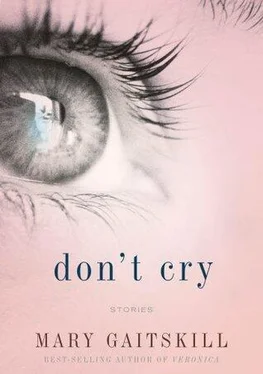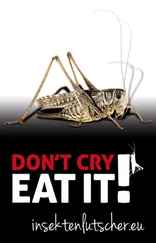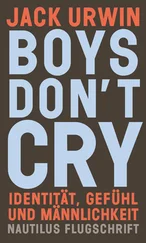Friends ask me when I suspected that something was wrong with Thomas. I don't know how to answer; I think I knew before I knew. There were indications, most of them disguised as age and its eccentricity But at least once the disease paraded itself garishly before me, and I didn't see it because I couldn't categorize it. Four years before he was diagnosed, we went to Spain for three weeks. We got back home in the evening, left our bags in the front hall, and went to bed. The next morning, I found him sitting in the kitchen, visibly afraid. He had no memory of our trip, yet he realized when he saw our bags in the hall that we had been somewhere. I made breakfast; I described for him everything we had done on the trip. He said he remembered, and I made myself forget it. Because nothing quite like that happened again, I could.
After a few days, Sonny began to eat in earnest — mashed bananas, cereal, formula, pasta, all of it. He built pyramids of empty film containers and prescription bottles and then knocked them down. He unscrewed and screwed the top on the milk bottle over and over. He discovered he wanted to walk and then — as if a bomb had gone off in his brain — he discovered that he might walk up and down the stairs. I passed through a sad and enchanted mirror: I walked Sonny like I had walked Thomas, his hands in mine, giving him a footstep pattern to follow, holding his eyes with encouragement. Everything depended on the slow movements of his blunt feet, of their exact position, trusting it, finding it again.
Everything depended on it: I pulled my husband out of bed to a standing position and led him backward, holding hands. I smiled at him and he smiled back at me. I got him on the john, waited for him to finish, and wiped him. I bathed him in the marble shower, which was so big, it made the whole room a shower where we could be naked together. We sat on the fancy marble floor and played, passing the hose back and forth, spraying, laughing. … And Sonny, with his little forehead blazing, several times nearly falling, climbed the stairs, leaning heavily into my hands. His hands radiated into my hands, imparting his being and sampling mine. “Look,” I said aloud. Look, my husband, my father, my lover, my child: Look at this little boy and bless him.
When Katya came home, she would jealously take the baby from me — of course jealously. Every day, she walked in and saw me having intimacy she couldn't have because she was out doing the shit. What she didn't see: It didn't matter. Sonny knew that Katya was his mother and that I was his nurse; the uncanny gleam we had seen the first day had found mental form quickly. But still Katya grabbed him jealously and fed him and talked angrily about the Head while I ate dried fruit and nuts. I half-listened. I looked at the spoon going in and out of the baby's mouth. I thought, If I am the nurse and Katya is the mother, who or what is the birth mother to him? Is she the earth of Sonny, the sky? The unseeable place the child walks when he sleeps? When I asked Thomas what he remembered about the birth mother who had abandoned him, he just said he liked her. He said he liked to picture her getting on the bus with a battered suitcase, in a long coat and flat shoes, her large eyes bold and intense, her hair like a movie star's. She was an adventurer, he thought, and he didn't blame her for leaving.
On our seventh day in Addis, Katya succeeded; she came back with a letter from the Head and another letter from an orphanage (run by a friend of the Head) that said they would sponsor the adoption. Out of fighting mode, she was dazed and unsure of how this had happened. “We were going at it as usual,” she said. “I told him I would be back in his office every day until I got permission, and he said, ‘Fine.’ And then a stomach cramp doubled me over; my head went between my legs, my teeth were gritted, and my intestines made this indescribable sound — I thought I was going to have diarrhea right there. The only reason I didn't leave was that I was worried about what might happen if I got up suddenly He didn't say anything. He just looked at me — almost like he felt sorry for me! Then he got a piece of paper and wrote the letter and pushed it across the desk.”
That night, we finally went out for dinner. We wore the dresses we had brought to celebrate in; Sonny wore his orange jumper. I chose an Italian restaurant we'd walked past several times, because the people in it always looked lively. But it wasn't lively this time. On the way there, the streets were nearly empty and the few people who were out seemed angry and tense. We were the only people in the restaurant. Katya didn't feel well enough to eat more than a few bites of pasta and she was too tired to talk much.
The next day, Katya and Sonny went to the American embassy in the morning and returned early in the afternoon. Sonny was tired and cranky so Katya wanted to rest before going to the travel agency to arrange our flight out the next day. They napped together while I went to the laundry room and washed our clothes. While I was in the dining area, waiting for the clothes to come out of the washer, I met our host's Italian mom. She was feeding her pug dog sliced fruit from a dish in her lap. I told her we were about to leave; she said it was a shame that we hadn't gotten to Lalibela. “I hope you can get out,” she said. “You choose a terrible time to come. You didn't know about the election?” I pointed out that she was here. She shrugged and meticulously peeled the skin off a fig. “I grew up here,” she said. “I know the place. You don't.”
I woke Katya and we tried to call Yonas. We couldn't reach him. This was unusual. We waited an hour and tried again; nothing. We waited another hour. We heard the huge gate open; people came in, talking loudly Someone ran up the stairs, past our door. Katya and I stared at each other. Sonny stirred. It wasn't right then that we heard gunfire, but maybe ten minutes later. It wasn't close by But close enough to hear. Not steadily, but off and on, during the afternoon and into the night.
Much closer than the gunshots was the machine of my body buzzing inside me. It came from inside me and also enclosed me like the darkness and the warmth of the night. It said, It doesn't matter if you die here. It might be better if you die here. But Katya and Sonny have to get home. It won't be better if they die.
The next day, Yonas came in his uncle's car instead of his taxi. We saw him pull into the driveway, and we ran out to meet him. From the car, he held up a hand to indicate he was talking on the phone. We stopped; he had never signaled for us to wait before, and this signal scared me more than anything so far. But he didn't keep us waiting long. He put the phone down and got out to tell us: There had been a demonstration about the election. Twenty-five people had been killed. The city was under martial law. He could not take us anywhere. He would be in touch. He had to get home as quickly as he could.
We played with Sonny all day both of us, going up and down the stairs, knocking the film containers all over the stairs, then picking them up again. When we heard shots, we looked up and then went back to what we were doing. The buzzing said, Your parents are dead; your husband is dead. You should be dead. But Katya and Sonny don't deserve to die.
In the early evening, Katya said, “We have to get something to eat. We haven't eaten for almost twelve hours.”
“We can't go out,” I said. “It isn't safe.”
“Sonny is out of food. He hasn't eaten for eight hours.”
“Katya, nothing is open; you heard Yonas.”
“The fruit stand will be open. There's no way they'll close. They're just down the street.”
“We're hearing guns.”
“The shots aren't close. I have to go out. If you won't go, I'll go alone.”
Читать дальше












